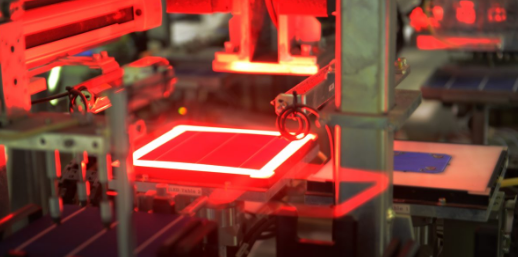Vikram Solar’s projects run the full gamut of size, from 1 MW of floating PV to a 200 MW utility-scale whale. The Indian engineering, procurement and construction (EPC) company’s rooftop PV portfolio consists of more than 500 installations at 250+ sites, totaling 27 MW installed, and more than 25 MW in the pipeline. The utility scale portfolio is just greater than 1 GW, in stages from commissioned to under development.
Vikram Solar is also a solar panel manufacturer. Currently, it has about 1.1 GW of annual manufacturing capacity in India, with plans to hit 2 GW by the middle of 2020. The company opened an office in Framingham, Massachusetts, in February 2018, and has been in Germany for a decade. It runs its international module business, which includes the U.S. market, via offices in Singapore.
The group has more than 40 years of business behind it, from its start in the tea processing industry to its eventual entry into the textile manufacturing field. It jumped into the solar business in 2006.
pv magazine USA recently sat down with the company at Solar Power International 2019 in Salt Lake City, Utah, as it announced three solar modules for the U.S. market. The company’s product specification pages are located here, with the three U.S. products noted below:
- SOMERA P-Duplex Frameless Bifacial – 72 cells, module ranging from 375 to 400 Wp, 30-year linear power warranty, available in January 2020
- SOMERA P-Duplex Framed Bifacial Half Cell – 144 half cells, transparent back sheet, modules ranging from 390 W to 420 Wp, 30-year linear power warranty, available in March 2020
- SOMERA Grand Ultima Max Half Cell – 150 mono PERC half-cells, modules ranging from 405 W to 425 Wp, 27-year linear power warranty, available in January 2020
When asked about the longer-than-average warranty, Ravi Vaidya, VP of global markets at Vikram Solar, noted that all of the modules are individually tracked, so problems can be traced, helping the company to quickly fix issues at the source. Vikram Solar’s EPC unit builds with the group’s own modules, which also gives it additional insight into field issues.
Like many groups, Vikram Solar works with DNV GL to test their bill of materials. Recently, lessons of automation have driven gains. The company uses at least some of Meyer Burger’s manufacturing lines for product headed to the U.S. market, and thinly laid-out busbars have been a part of that relationship.






